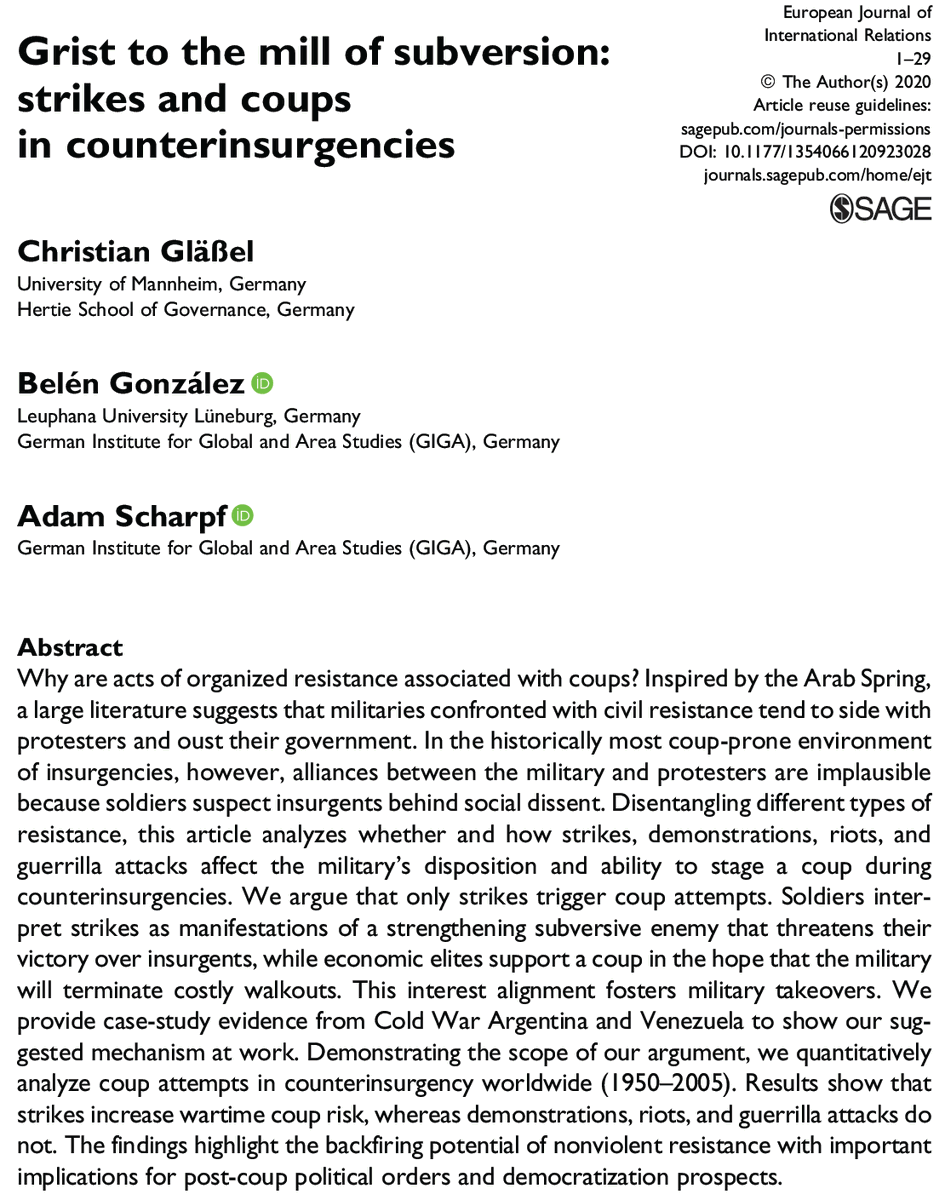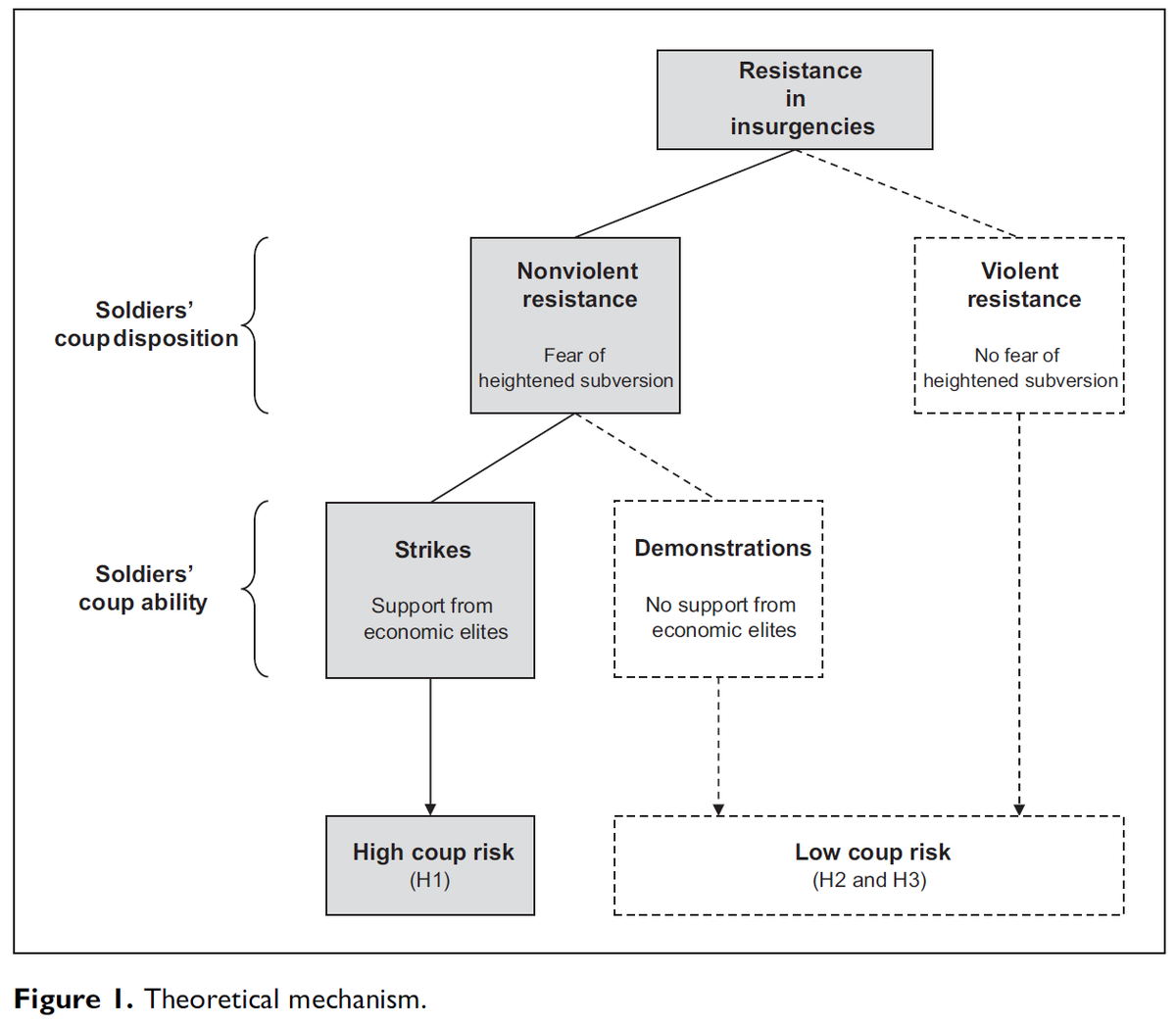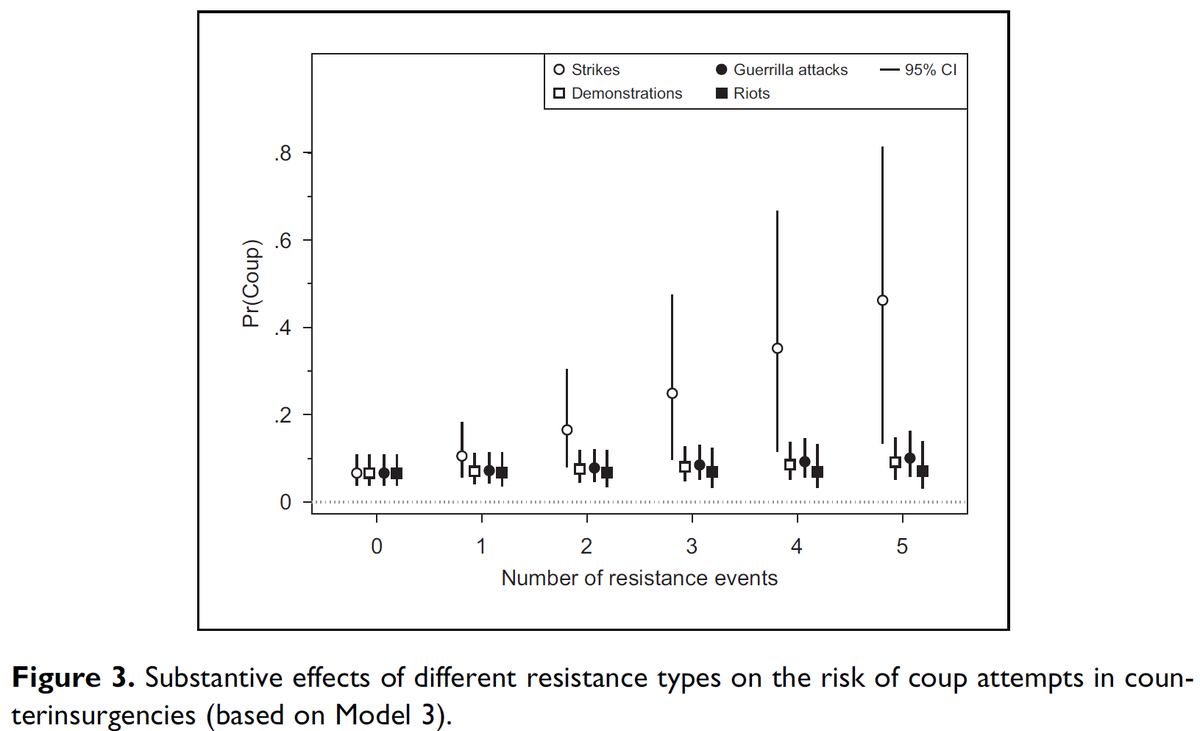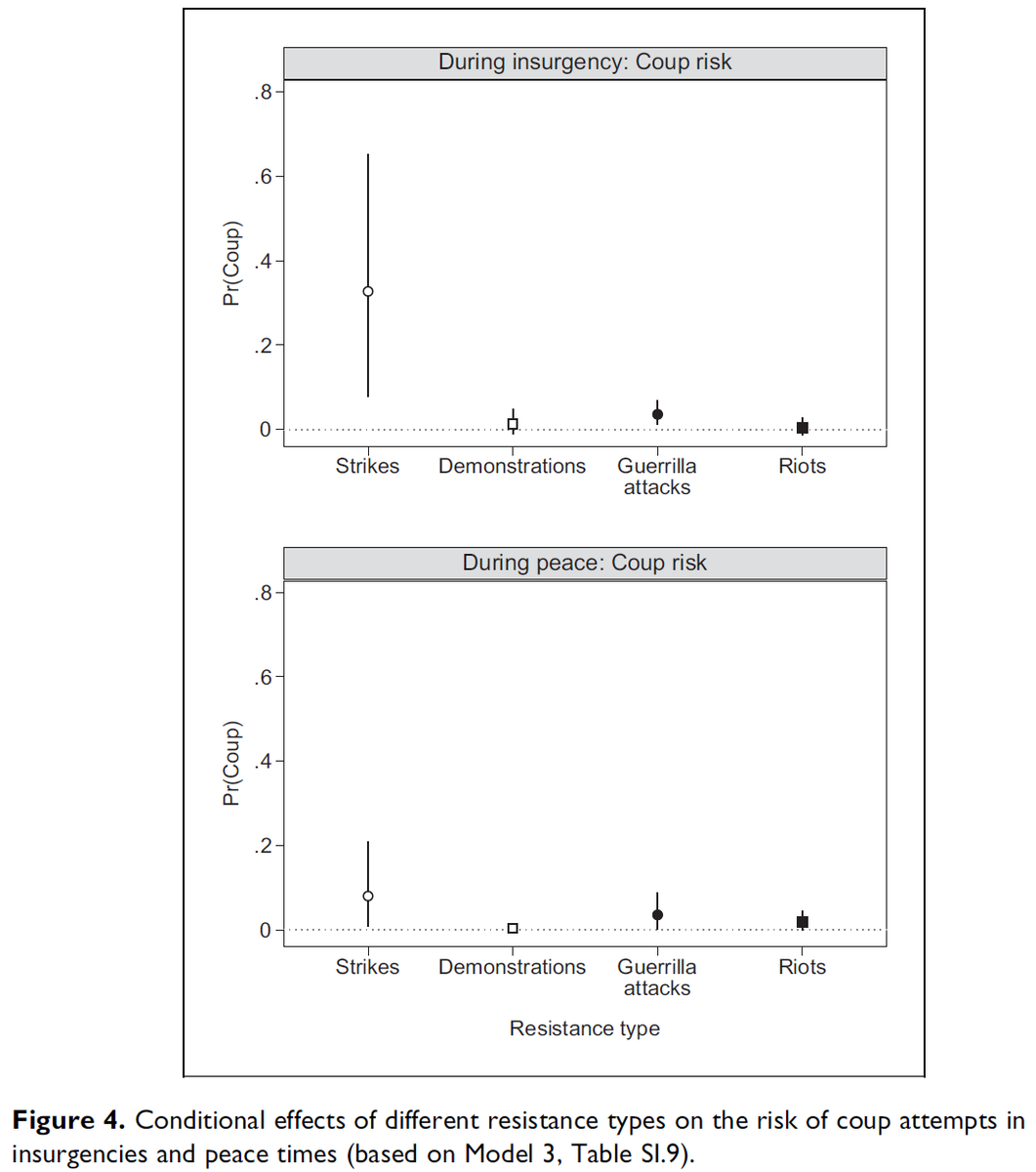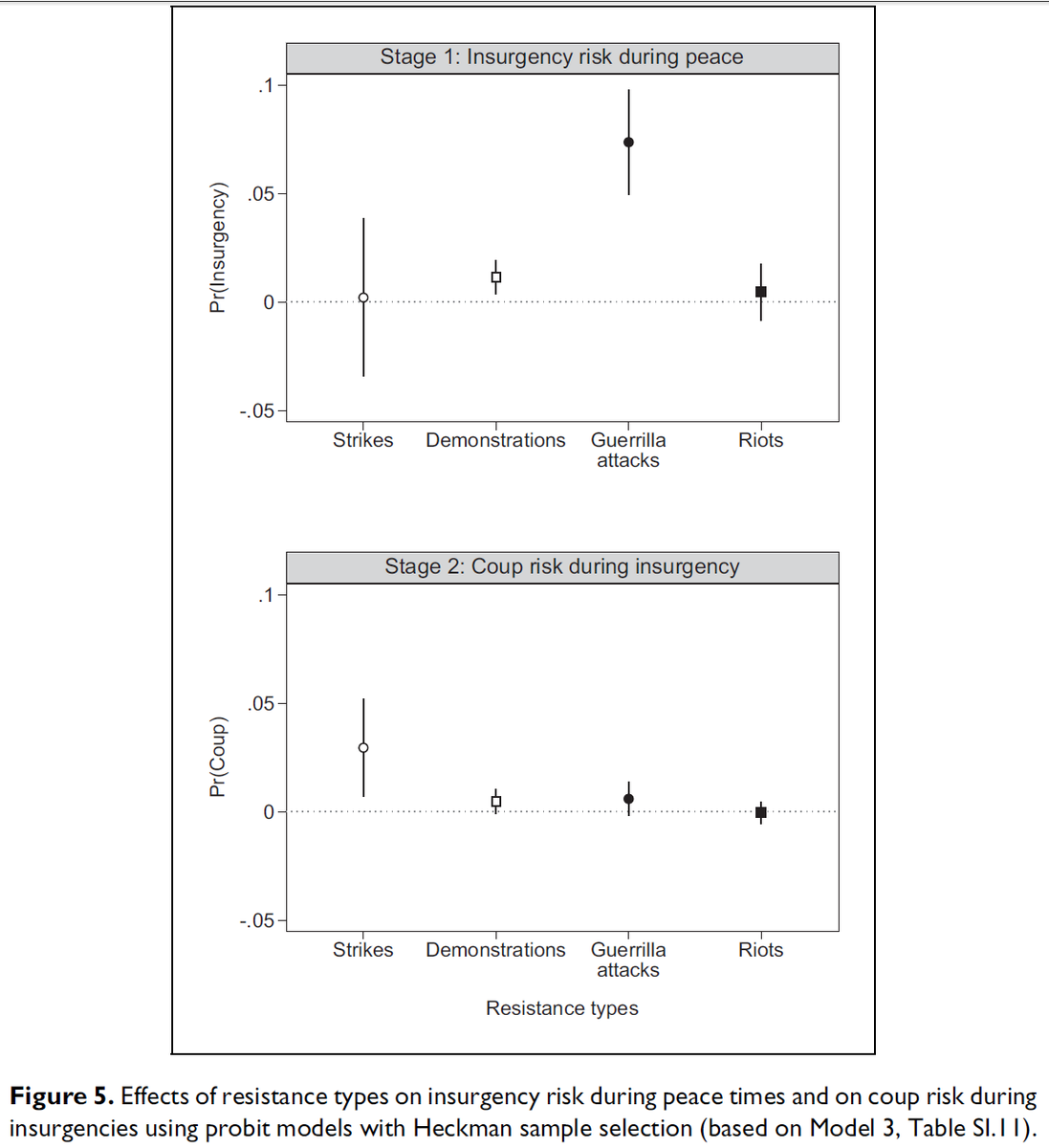Excited that our ( @BelenGonzalez_S @leuphana @GIGA_Institute & Christian Gläßel @Hertie_Security) paper on organized resistance as coup triggers is out @EuroJournIR. We study how resistance types, specifically strikes, foster collusions between military and economic elites.
We have greatly benefited from comments and feedback by, among others, @UrsulaDaxecker @kcbeardsley @Sabine_Carey @GovClayton @felixhaass @jessicabraith @JCPinckney @prof_powell @wucherpfennig_j
We were puzzled by the common claim that militaries confronted with protest will side with people in the streets. In many contexts (e.g. counterinsurgencies) this is implausible because soldiers see dissent as work of subversive enemy. With whom does the military team up then?
Our answer: Economic elites. Soldiers interpret strikes as an ongoing subversion gaining momentum (coup disposition); economic elites support a coup in the hope that the military will terminate costly walkouts (coup ability). We thus expect that only strikes trigger coup attempts
Our article brings together the literatures on civil resistance, armed conflict, and military coups.
Elite collusions are difficult to observe. We therefore employ a mixed-method design: Two case studies (Argentina & Venezuela) to probe plausibility of our mechanism and a macro-quantitative analysis to demonstrate the scope of our argument.
Results (simple + interaction + selection models) show that in the context of subversion (aka counterinsurgency) strikes stir officers’ fears of a clandestine enemy while generating support by economic elites. Together this increases coup risk.
Take away: Military-protester alliances are not the only possible type of coup coalitions.
Implications:
1) Coups triggered by civil resistance do NOT present an unequivocally good sign for dissidents and citizens. Nonviolent dissent may lead to nasty post-coup political orders
1) Coups triggered by civil resistance do NOT present an unequivocally good sign for dissidents and citizens. Nonviolent dissent may lead to nasty post-coup political orders
2) Paradoxical backlash effect for labor-based dissent: Strikes may pave the way for pro-business dictatorships that suppress labor movements. This qualifies the otherwise positive influence of organized labor on peaceful and democratic political transitions.
3) Civil resistance may also produce detrimental effects in other contexts. E.g., where the armed forces are a major economic player, strikes are probably sufficient to threaten soldiers’ interests and trigger coups without support of economic elites.
4) Future work may want to pay closer attention to actors within and outside the military apparatus and how they affect civil-military relations.

 Read on Twitter
Read on Twitter